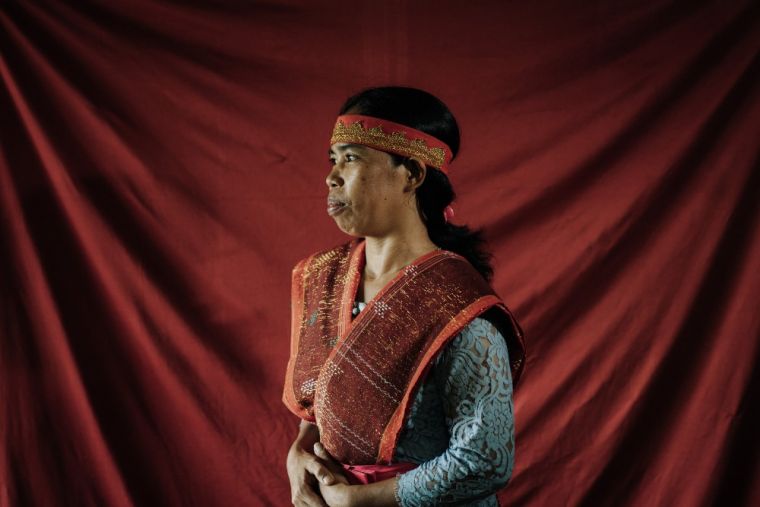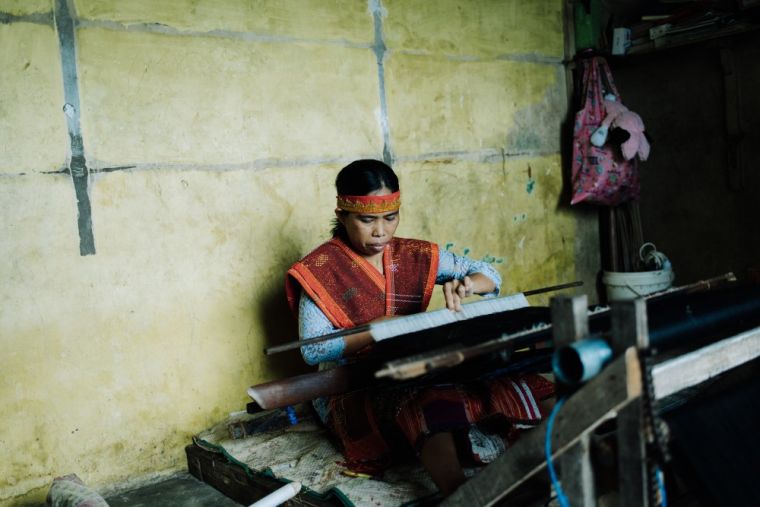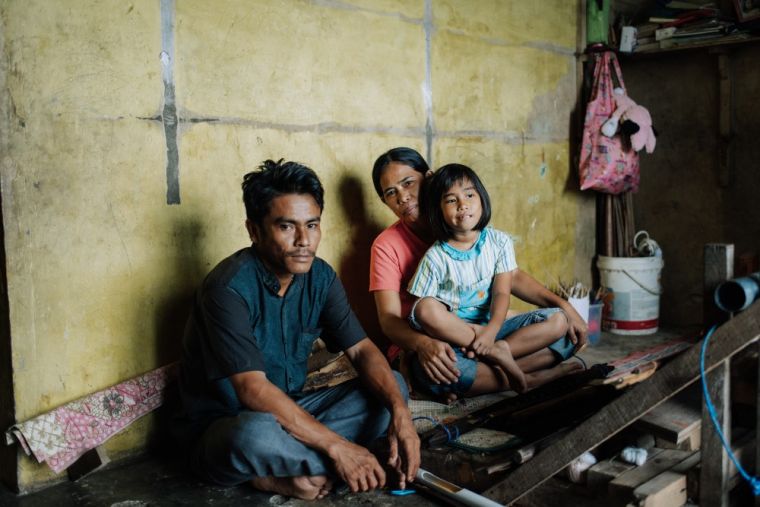Women hard-hit by the pandemic find resilience in their unshakeable faith

The shock of a global pandemic is still reverberating around the world. As we celebrate International Woman's Day and Mother's Day this week, it's important to acknowledge that, and while everyone is affected by the coronavirus, women in particular have been dealt a devastating blow.
As quarantine measures have shut schools and day-care facilities, women are often shouldering the burden of balancing work from home with childcare and home-schooling. Social distancing deprives them of the support they could normally lean upon.
On top of this, two-thirds of the jobs lost permanently due to Covid-19 are traditionally performed by women. But women are far from defeated. In the midst of challenge, their strength - often found in their faith - is undeniable.
Through the pandemic, Compassion UK's local church partners have continued to work with women in communities across the world. We have witnessed their courage and ingenuity as they have fought to support their families. We have been inspired by their resilience and humbled by their unshakeable faith. We want to celebrate these women, and share their stories, stories of women like Marhati.
In Medan, Indonesia, there is a tradition of weaving the Batak tribal fabric called ulos. Ulos, a meticulous handwoven textile, is the traditional cloth of the Batak people of North Sumatra in Indonesia used in special occasions like weddings, burials, housewarmings, and other ceremonies. The textiles become precious heirlooms or ceremonial gifts. However, just like other traditional fabrics in Indonesia, the commercialisation of the textiles has made mass-machinery production inevitable. There are a remaining small number of people—mostly women—who still have the ability to produce it in traditional ways.
Marhati is one of them. In previous years, she produced and sold about three pieces of ulos each month. But when the pandemic hit, she didn't make a sale for months. Marhati told us, "During the early months of Covid-19, many ceremonies were restricted, making my fabric orders hit the bottom ground."

As well as her work, she also had her seven-year-old daughter Geovanny, who is part of the Compassion child sponsorship programme, to keep an eye on. Like many children she been doing school virtually from home and Marhati has had to juggle work with helping her study.
Her husband's work as a motorcycle driver brings in an unreliable income and in ordinary times they earn just enough to fulfil their household needs and cover their daughter's school tuition. But the pandemic put this under serious threat.
Marhati and her family found themselves pushed to the limit of their resources. She reflected, "The hardest part for me is to keep our daily household needs sufficiently fulfilled. While my husband couldn't get much from his everyday work, and my income for this work also significantly declined, we had to be very economical in spending our money."
They had no reliable income, all the same needs and no idea what the future would hold. The food packages provided by the local Compassion centre each month became a lifeline. But despite the pressures and uncertainty Marhati's faith remained unshakable; she continued to care for her family, to weave her ulos, and trust God.
Then, after many months, their fortunes began to change. The government eased restrictions and introduced laws allowing mass gatherings. The fabric orders have slowly begun to rise again and Marhati's income along with it.
The Compassion centre also promotes Marhati's ulos weaving work to the children and other parents; recognising the importance of empowering women to generate an income and give the new generation a chance to learn this 100-year-old weaving technique.

Marhati's resilience and independence has inspired other women in her neighbourhood. Most of the women in her community are housewives and their dependence on their husband's income hit families hard during the pandemic. Some have shown interest in learning ulos weaving, while others earn income by helping Marhati to spin the yarn.
"In my culture, I was taught that women have to be strong and self-reliant, so she can be a helpful partner to the husband," she said.
She has seen many women who are willing to try new things to make extra money for their family. She recalled there was "a 60-year-old woman who was ready to spin yarn for me for some money. That's so unforeseen from an older lady!"
Marhati describes women as "strong, fierce, and audacious", a description that first her perfectly. The pandemic shook the foundations of Marhati's life, but it did not shake her faith or her trust in God. In the face of the challenges and hardships of the pandemic, Marhati's story shows there is hope and empowerment one woman can bring.
The local church partners that Compassion UK works through are planning an economic response to release the world's poorest children — and caregivers like Marhati — from poverty and help counter the socio-economic fallout caused by the coronavirus pandemic restrictions. To find out more go to: compassionuk.org or follow them on social media @CompassionUK











